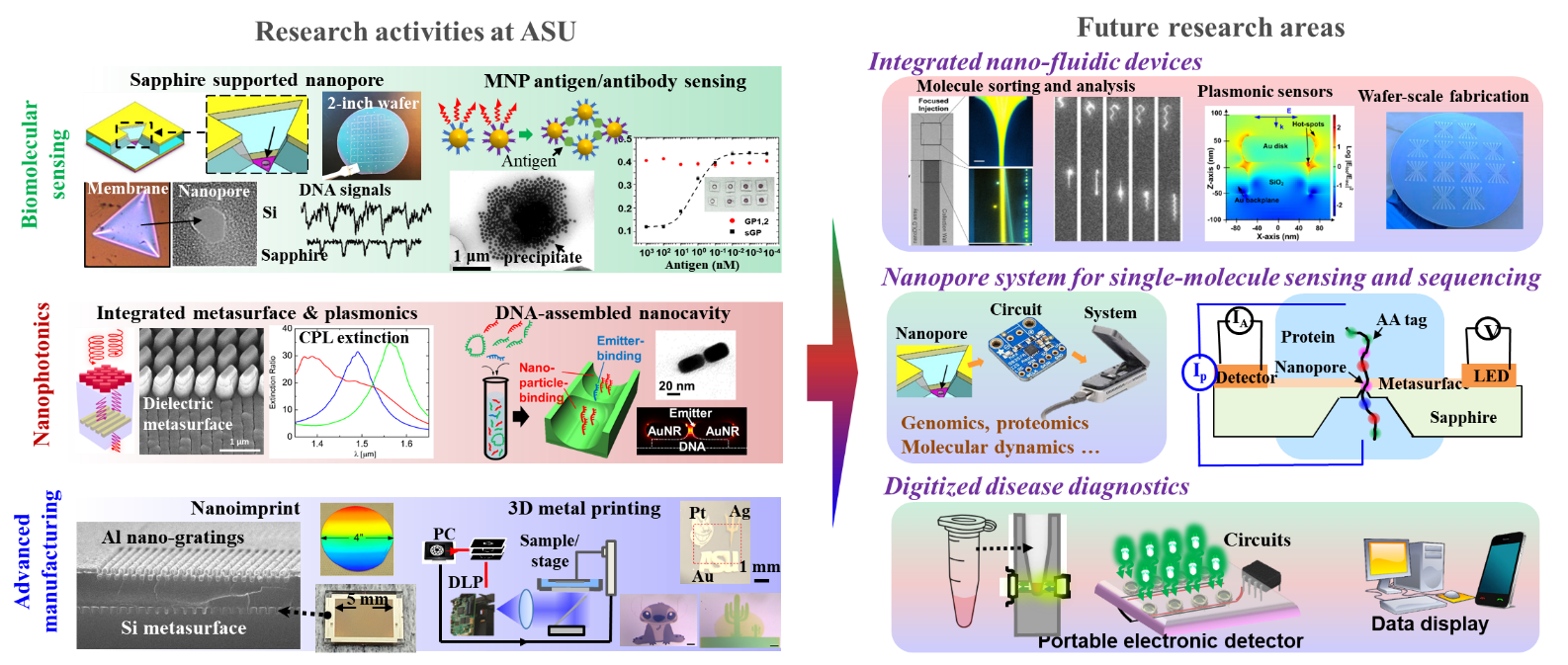Multidisciplinary research
I believe that we cannot limit us to one particular discipline when solving problems. Instead, I view multidisciplinary and integrative strategies an effective and necessary tool to solve problems at the interface of different disciplines. My research goal is to develop a multidisciplinary program that advances physical science at nanometer scale and develop impactful biosensing technologies. For example, concepts and methodologies of physical sciences help build new devices and systems that can revolutionize our understandings of biological processes. I envision a multi-level integrative strategy to explore potentially translational biomedical solutions that are faster, more accurate, less expensive, and more broadly accessible. First, systematic integration of sample handling, detection, and readout on a compact system is advantageous in minimizing pre-analytical errors, sample volume, and sensing time. Further, integrative diagnostics of a panel of biomarkers from genomics and proteomics to epi-genomics and metabolomics can provide valuable systems-biology understandings for complex disease detection, particularly at an early stage. Lastly, optimal sensing system designs require multi-disciplinary knowledge from manufacturing, photonics, fluidics, circuits, statistics, machine learning, and biochemistry.
Funding and projects
Over the past few years, my lab has worked on 12 externally sponsored projects by government agencies (NSF, NIH, USDA and DOE) and industry (Roche), with a total lab funding of $6.1 M (project total ~$9.7 M). We have additional grans pending review and a few other proposals being prepared. Prof. Wang has received prestigious NSF CAREER Award (2019) and the NIH director’s New Innovator Award (2022).
Key research areas:


